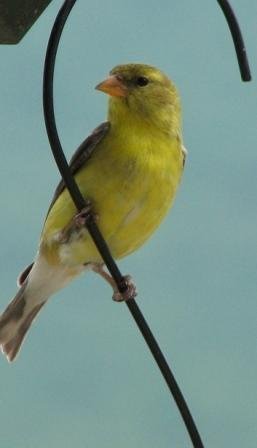Still working, but we try to find some peace and relaxation from time to time while we're still on the treadmill.
Anyone else interested in birding, putting up nest boxes, backyard bird feeding? [Between that, my Harley and some hiking, I'm actually developing a few minor hobbies again.] Here in TN, there is a large variety of beautiful and interesting birds. Even have an Eastern Bluebird currently incubating eggs in our first nest box. Neat.
I'm a rank amateur, just beginning to learn a bit. Seems like a fairly inexpensive hobby, with the exception of the bird seed. Sheesh ... they're eating better than we are. The cheap Home Depot / Lowe's seed looks lousy, but the Birds Unlimited Choice seed is nearly $18 per 20# bag. Any efficient alternatives out there?
For those interested in this avocation, how do you pursue? Equipment suggestions, trips, books, web sites ... ?
Thanks.
Anyone else interested in birding, putting up nest boxes, backyard bird feeding? [Between that, my Harley and some hiking, I'm actually developing a few minor hobbies again.] Here in TN, there is a large variety of beautiful and interesting birds. Even have an Eastern Bluebird currently incubating eggs in our first nest box. Neat.
I'm a rank amateur, just beginning to learn a bit. Seems like a fairly inexpensive hobby, with the exception of the bird seed. Sheesh ... they're eating better than we are. The cheap Home Depot / Lowe's seed looks lousy, but the Birds Unlimited Choice seed is nearly $18 per 20# bag. Any efficient alternatives out there?
For those interested in this avocation, how do you pursue? Equipment suggestions, trips, books, web sites ... ?
Thanks.

